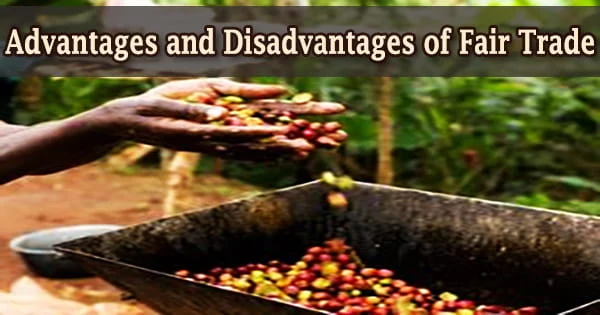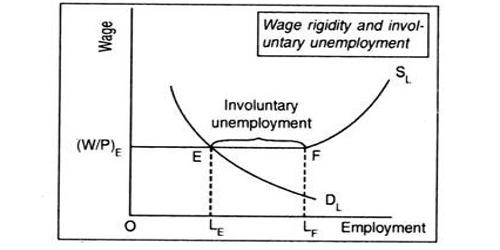Fair trade focuses on the impact of trade on the environment, labor standards, and human rights in other countries, with the goal of improving those effects. It is a trading relationship built on discussion, transparency, and mutual respect, with the primary goal of increasing international trade equity. The ideals of equality and justice are embodied in fair trade practices
Its main purpose is to improve the working and living conditions of the most exploited and disadvantaged producers in third-world countries. Fair Trade refers to a commercial agreement based on conversation, openness, and respect, with the goal of achieving greater fairness in cross-border trade. It focuses primarily on individual interactions between primary producers and businesses and works to make these relationships more reasonable and compassionate.
The World Trade Organization (WTO) is a Geneva-based intergovernmental organization that promotes and regulates global trade. It was founded in 1965. The WTO was preceded by the General Agreements on Tariffs and Trades (GATT), which was established in 1947 and had similar goals to the WTO. Fair trade supporters think that through stimulating changes in the supply chain of specific items, reforms in rural labor markets can be introduced, improving the lives of many disadvantaged people.
The main purpose of all fair trade policy initiatives is to ensure that every worker receives a living wage. They are dedicated to improving the working circumstances of primary producers such as farmers and craftspeople. Fair Trade attempts to reduce exploitation in the marketplace while also lowering human rights breaches and environmental concerns.
This sort of trade aims to restrict trade based on worries about possible infractions if specific countries are traded with. Fair trade coalitions are concerned with transparent, equitable, and nondiscriminatory practices. Small producers in impoverished nations form groupings or cooperatives. Fair trade buyers must have long-term partnerships with these suppliers and pay a minimal price for the product.
Fair trade is a commercial agreement in which distributors purchase products directly from manufacturers at a set price, regardless of the price at which the distributors sell the products. Many organizations use fair trade as a marketing tactic to increase product sales while also helping to alleviate poverty in underdeveloped countries. Small producers invest 31% of their Fair trade premium income on increasing productivity or improving quality.
Advantages of Fair Trade:
- In poorer nations, where low wages are common, fair trade promotes competitive labor wages.
- Producers in low-income countries who participate in fair trade schemes have witnessed a rise in their earnings.
- Fair trade producers invest a significant portion of their additional profits in education and other initiatives that enhance productivity and sustainability.
- Fair trade encourages farmers to have stable employment and invests in community facilities such as schools and health clinics.
- Fair trade items enable buyers to purchase high-quality goods.
- Farmers and labourers who work for fair trade certified producers are entitled to a minimum salary.
- In the backdrop of globalization, fair trade initiatives have enabled small producers to compete.
- It improves working conditions by removing harmful substances and providing safe working instruments, as well as reducing the usage of child labor.
- Small producers that previously had little bargaining power with buyers and dealers have been empowered and given a voice thanks to fair trade.
- Fair trade permits trade to benefit everyone while also helping to conserve the environment.
- Fair trade arrangements satisfy the vast majority of producers.
- Many locations with free trade cooperatives have seen remarkable improvements in social conditions.
Disadvantages of Fair Trade:
- Obtaining fair-trade certification can be costly for an enterprise.
- If some populations are excluded from the fair trade process, it may cause social divisions and conflicts.
- Fair trade may not be accessible to all farmers since they must pay a fee to be registered as fair trade growers, which may be prohibitively expensive.
- It does not guarantee higher wages. For example, a survey on Fair Trade in Uganda and Ethiopia published by SOAS University of London indicated that wages in Fair Trade certified markets were extremely low. The investigation found that certification schemes were not doing a good job of monitoring salary and conditions. Wages were typically lower than those earned by producers in the same area and working on the same crop who did not have the Fair Trade accreditation.
- Because the guaranteed price may be too high for some customers, fair trade may reduce the client pool.
- After certifications expire or are abandoned, it is difficult to ensure that abusive labor practices do not resurface.
- Fair trade products have administrative expenses that can significantly affect the profit made by farmers.
- Large corporations are encouraged to shun fair trade items because of the profit margins that may be obtained from them.
- The purpose of fair trade for some businesses is merely to enhance profits. As a result, they may be utilizing fair trade certifications as marketing tools to differentiate their products or, worse, to reclaim an image that has been tarnished by other unethical acts.
Despite the benefits of fair trade in assisting farmers in developing nations, its drawbacks may ultimately render it ineffectual in assisting these farmers. They can also apply for interest-free loans or loans with a nominal interest rate. It ensures fair prices, safe working conditions, natural resource conservation, and the absence of forced child labor.
Fair trade advocates urge multinational corporations, large corporations, and governments to control trade even more. Fair trade not only ensures that workers are paid a living wage, but it also seeks to prevent the global trading system from exploiting these workers’ rights and lands. Fair trade advocates believe that it will help prevent large firms from suffocating their competitors and forming monopolies.
















